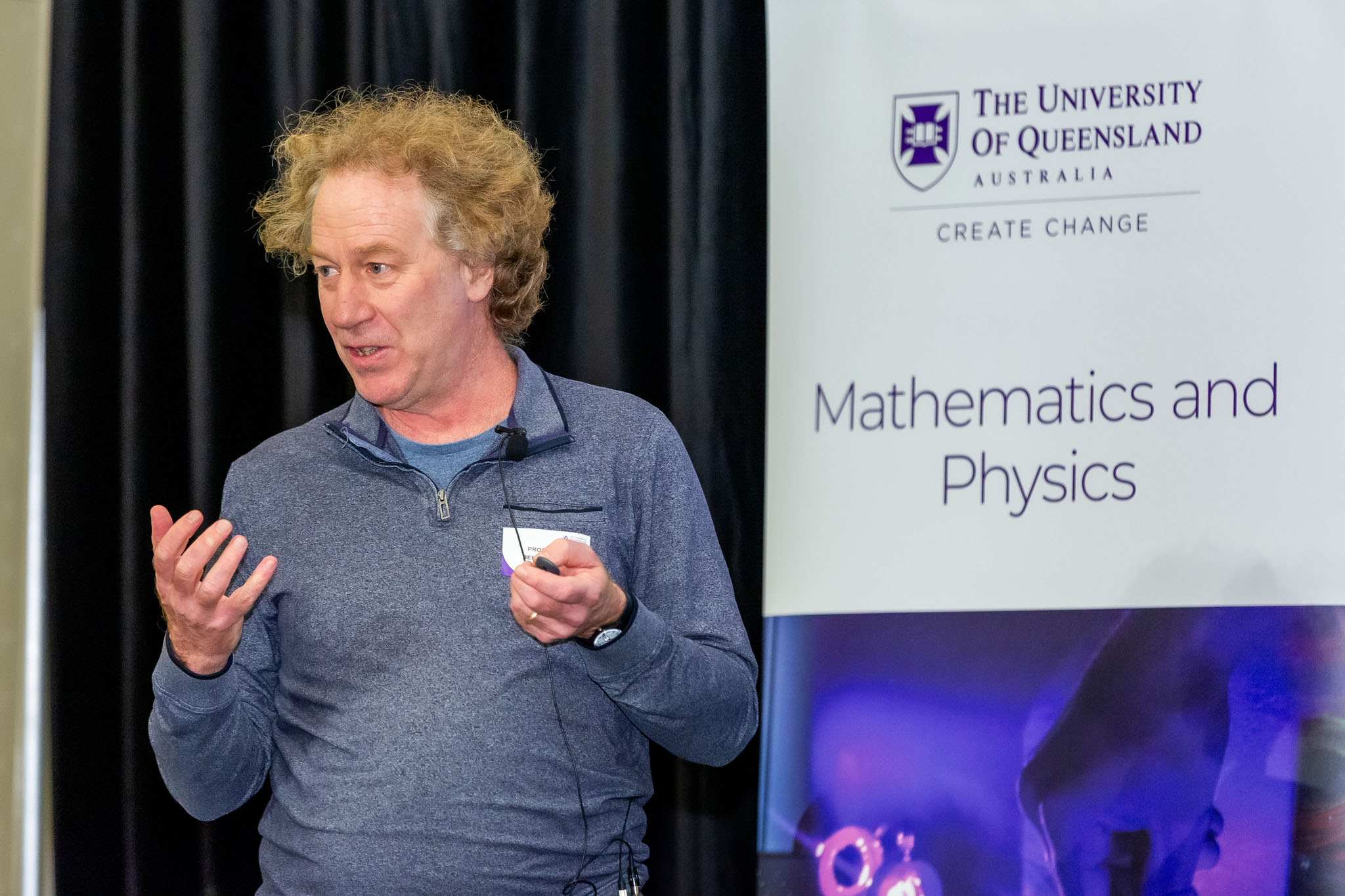
This year’s Nesbit Endowed Lecture in Pure Mathematics has wrapped up, shining a light on the extraordinary world of pure mathematics.
Renowned mathematician Professor Ben Andrews took the stage at Customs House to explore the world of geometric flows, shape shifting and the robust computational framework that is diffusion geometry.
Professor Andrews explored the surprising idea that diffusion equations can be useful in a subject such as differential geometry.
“Diffusion equations – describing the transport of a substance or property from a region of high concentration to low concentration over time – have already changed the world,” he said.
“These beautiful ideas solved the only one of the Millenium Prize problems to have been tackled so far and changed what we thought was possible.
“Mathematics has always been a subject driven as much by its beauty as its function.
“Whether you study it for its intrinsic value or because of its power in applications, there are great rewards to be had in understanding it, even though it can be difficult or overwhelming at times.”
Professor Andrews’ passion for geometry and pure mathematics caught fire early in his career.
“At the end of my undergraduate degree, I was tossing up between pure mathematics and theoretical physics,” Professor Andrews said.
“The determining factor in the end was Gerhard Huisken, who at that time was a young faculty member at ANU, who taught a series of fascinating courses on geometry and on partial differential equations.
“ I was hooked, and although my honours thesis had been on dynamical systems, I switched fields to geometry to work with Gerhard.
I was hooked, and although my honours thesis had been on dynamical systems, I switched fields to geometry to work with Gerhard.
“I certainly don’t regret the choice — it has been a beautiful subject to study!”
The Nesbit Lecture was established to honour Dr John Nesbit and is supported through his generous gift to the School of Mathematics and Physics, which also supports the Dr John Nesbit Pure Mathematics Fellowship.
Dr Yang Zhang is UQ’s current John Nesbit Fellow in Pure Mathematics, and is working on representation theory, a field in pure mathematics that studies symmetries.
“Symmetry is not only aesthetically pleasing but also fundamental to the underlying laws of physics and mathematics,” Dr Zhang said.
“Now I spend a lot of time thinking about how complicated systems with symmetries can be understood by breaking them into simpler building blocks.
“What I enjoy most is finding patterns that aren’t obvious at first and showing how they connect different areas of maths.”
Dr Zhang said the Nesbit fellowship has been incredibly important to his development as an independent researcher.
“It’s given me the time and freedom to think deeply, start ambitious projects, and explore ideas that would be hard to pursue otherwise,” he said.
“It has also allowed me to improve my teaching skills, build research connections, and take part in seminars and events – having this support early in my career has been genuinely invaluable.
“Mathematics is a fascinating world of ideas and discoveries, and being a mathematician is perhaps one of the best jobs, as you have the freedom to explore questions that genuinely interest you and follow ideas wherever they lead.”



